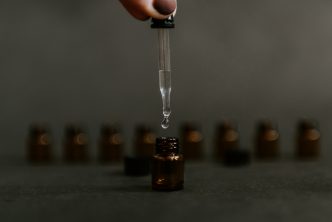Involuntary urination is ironically a problem experienced at both ends of a person’s life, both during infancy and aging. But while infants experience this problem because they haven’t yet learned how to control their bladder, older adults have difficulty with bladder control usually because of either urinary tract disease, nervous system dysfunction, allergic response, ruptured disk, or psychological stress.
Women tend to experience involuntary urination after childbirth, surgery, or inflammation of the urethra, while men tend to get it if they have a prostate problem. Also, certain prescription or over-the-counter drugs can cause this problem; check with your doctor or read about whatever drug(s) you are taking in the Physician’s Desk Reference or some other popular drug compendium.
There are three types of involuntary urination: 1) stress incontinence, 2) overactive bladder, and 3) overflow incontinence. Stress incontinence leads to a weakened bladder, usually from childbirth or surgery, in which the person accidentally urinates while coughing or laughing. An overactive bladder occurs when the lining of the bladder is hyperactive, causing spasms. Parkinson’s disease, cancer, Alzheimer’s disease, and enlarged prostate can lead to this condition. Overflow incontinence occurs when a disease process prevents the easy emptying of the bladder, causing the person to urinate once an overflow condition is reached.
Whatever the cause of involuntary urination, any symptom must be recognized as a symptom of another problem. It is important to recognize that the word “symptom” is taken from Greek and means “sign” or “signal.” As such, a symptom is a sign or signal of something wrong, and treating it does not necessarily correct that something wrong. In fact, treating a symptom is like unscrewing your car’s oil light because it is blinking. Although such treatment “works,” it does not solve the fundamental problem of the car’s oil pressure.
Likewise, a drug may temporarily get rid of a symptom, but unless it deals with the underlying factors that led to the symptom, the condition will return.
The best way to treat a person who experiences involuntary urination with homeopathic medicines is to seek professional homeopathic care. A homeopath would individualize a natural remedy for the person based on the totality of their symptoms, not just their bladder symptoms. This individualized remedy would strengthen the person’s overall immune and defense system, not only potentially eliminating the symptom but curing the underlying disease.
Although it is preferable and ultimately most effective to seek professional homeopathic care, there are homeopathic medicines that people can learn to use on their own. In fact, a product, called EnurAid, includes many of these homeopathic medicines. It is surprisingly inexpensive, and because it is non-toxic and non-addictive, there is very little risk in trying this remedy.
The following homeopathic medicines, many of which are included in EnurAid, can strengthen your bladder and alleviate some of the discomfort you are feeling.
Homeopathic Medicines
Arnica (Leopard’s bane) is invaluable for involuntary urination after surgery.
Belladonna (deadly nightshade) is effective for people who tend to dribble urine when cold or chilled. They may experience burning pains along the length of the urethra during urination. They tend to have wild dreams, often dreams of urinating.
Causticum is useful when involuntary urination is worse in the winter and better in the summer. Various fears and apprehensions accompany the urination, especially fears that something bad will happen to them. They have a fear of going to bed in the dark. These people also tend to wet their pants when they cough or sneeze or even laugh.
Equisetum (Scouring rush) is for people who wet their pants or their bed for no known reason other than out of habit. It should be considered when the person has no other obvious symptoms. It should also be given when the person experiences wild dreams or nightmares when bedwetting. They tend to dream of crowds of people.
Ferrum phos (iron phosphate) is most effective for daytime wetting in the pants, especially when the person feels the strongest urges while standing. Their urgings to urinate are lessened while lying down.
Kreosotum (Beechwood) is helpful when the person has such a sudden urge to urinate that they do not have enough time to get out of bed to go to the bathroom, this remedy should be considered. These people tend to wet their bed during the first part of the night. Sometimes they will have dreams that they are urinating.
Lycopodium (Club moss) is valuable for people who are so anxious that they constantly worry about what others think of them tend to need this remedy. They usually have fears of trying anything new. They are more apt to wet the bed if they sleep in a warm or stuffy room. They prefer to sleep with an open window.
Taking and Accessing Homeopathic Medicines
Virtually every European city has homeopathic pharmacies, but most major American cities do not. Still, homeopathic medicines are often available in health food stores and in select pharmacies.
People who are new to homeopathy should ask for any of the above remedies in the 6th potency and should take them three or four times a day. If improvement is not noticed after one week, the remedy chosen was not the correct one, and because these remedies are not known to have side effects, no harm is created by trying them.




